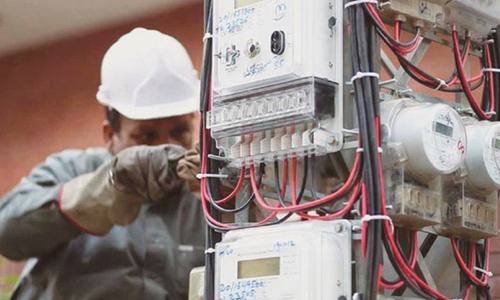ISLAMABAD: The National Electric Power Regulatory Authority (Nepra) on Tuesday allowed ex-Wapda Discos to transfer the burden of Rs14.780 billion (14.56 paisa per unit) to the power consumers on account of power purchase price (PPP) adjustment for the first quarter of 2019-20.
The hike in electricity prices continued unabated as Nepra has notified an increase of 14.56 paisa in the power tariff for the power consumers on account of power purchase price (PPP) adjustment for the first quarter of current fiscal year.
The distribution companies had filed their request for adjustments on account of variation in the power purchase price for the first quarter (July-September) of FY20. The government had requested to increase electricity tariff by 17-paisa per unit to generate Rs17.2bn additional revenue for Discos.
Nepra had conducted a public hearing over the ex-Wapda distribution companies (Discos) petition for the transfer the burden of Rs17.2bn to power consumers on account of power purchase price (PPP) for the first quarter of 2019 last week and reserved its judgment.
At a public hearing presided over by Nepra chairman Tauseef H. Farooqi, the participants had questioned the continuous increase in power tariffs on the pretext of various adjustments including monthly fuel price adjustment, annual increases in base tariff, quarterly tariff adjustments and prior year adjustments.
The participants also said that these were increased on the basis of adjustments are getting unaffordable for the power consumers.
Regulator sanctions 14.56-paisa hike for July-September
They also questioned that why an increase of Rs3bn was being sought by Discos on account of fuel costs as this component was part of the monthly fuel price adjustment and was automatically recovered from the consumers.
The Nepra chief and other members agreed to and asked joint secretary of the power division Zargham Eshaq Khan to respond to the queries raised by the participants.
The Power Division joint secretary had conceded that power tariffs have become unaffordable but said the increases being made were under the laws and the rules. Zargham has argued that government was making other policy interventions like promotion of renewable energy projects and offering incremental power consumption at a flat rate of Rs11.97 per unit for relief.
As per the petition the distribution companies had demanded the highest increase of Rs11.2bn on account of transmission and distribution losses, Rs3.5 billion on account of higher fuel costs and Rs3.46bn for O&M charges.
The additional expenses of eight Discos have gone higher than originally estimated. The expenses of two Discos of Faisalabad and Tribal Electric have been reported on the lower side during the quarter.
These two Discos have proposed a benefit of Rs946million and Rs991million respectively to be passed on to the consumers because of their lower than estimated expenses.
According to the petition by Discos, Islamabad Electric Supply Company (IESCO) has asked for Rs1.445bn, Lahore Electric Supply Company for Rs5.05bn, Gujranwala Electric Power Company for Rs1.536bn, Multan Electric Power Company for Rs2.215bn, Peshawar Electric Supply Company for Rs3.67bn, Hyderabad Electric Supply Company for Rs2.506bn, Quetta Electric Supply Company for Rs1.53bn, while Sukkur Electric Supply Company has asked for adjustment of Rs1.19bn.
It is worth mentioning here that for the first quarter of 2019, Nepra had allowed an increase of Rs71.2bn to ex-Wapda Discos on account of monthly fuel cost adjustments. For July, Nepra had allowed an increase of Rs1.78 per unit in power tariff, for August Rs1.66 per unit and for September Rs1.8266 per unit on account of fuel cost adjustment.
Published in Dawn, November 27th, 2019













































